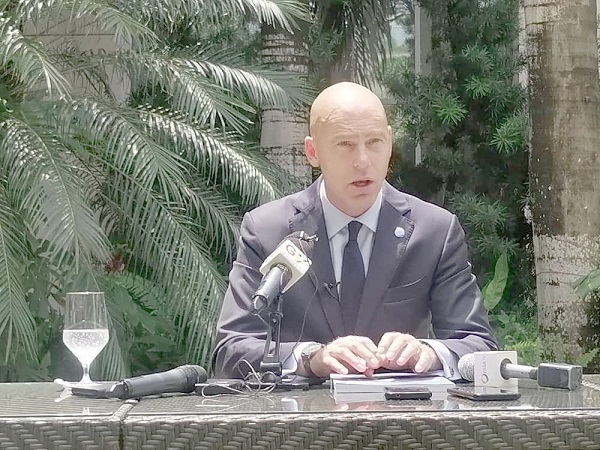
THE Global Centre on Adaptation (GCA) is building the capacity of the Ghana Infrastructure Investment Fund (GIIF) to enable it to access funding from the Green Climate Fund (GCF) for climate resilient projects in the country.
The centre is also helping the GIIF to develop proposals necessary to attract funding from the global initiative that was established two years ago to help drive up investments into the green economy.
A Professor of Sustainable Development and the Chief Executive of Officer (CEO) of the Global Centre on Adaptation (GCA), Prof. Patrick Verkooijen, disclosed this in Accra on May 26, when he addressed the media.
He said the capacity-building programme for the GIIF was under the centre’s Africa Adaptation Acceleration Programme meant to support African financial institutions to access the fund.
“We are supporting financial institutions in Africa to get accredited to the GCF and at the same time, develop proposals.
Here in Ghana, we are working with the GIIF to get them accredited but we do not want to wait two years to develop the proposal. We want to develop the proposal now and when the institutions are fit for purpose, the proposal is there and the money can flow to invest in climate resilient infrastructure,” the CEO of the GCA said.
Theme
The news conference, on the theme: ‘Financing climate resilient infrastructure in Ghana’, formed part of the 2022 Africa Development Bank (AfDB) meetings that ended in Accra over the weekend.
It was meant to afford the GCA the opportunity to shed more light on its line of work and call for increased commitment to issues of climate financing.
The centre is a private sector initiative that works with regional and global bodies such as the AfDB to accelerate action and support for adaptation solutions.
Investment required
Prof. Verkooijen said estimates showed that Ghana needed to invest US$1.5 billion to build resilient infrastructure and cities to be able to contain the effects of climate change or risk suffering the repercussions that include heightened flooding, hotter temperatures and climate-related diseases.
Ghana has no alternative than to invest now in making its infrastructure resilient. It is good for our health, the planet and our economy,” he said, adding that failure to invest that amount would lead to losses equivalent to more than $13 billion.
Complicated procedures
While admitting the funding gap facing countries with regards to issues of climate change, Prof. Verkooijen said there was financing out there in the global system to support climate resilient projects.
An example is the GCF, created two years ago. It was actually set up to support climate problems by getting the finance flowing to these countries. But what is the reality on the ground? There is US$10 billion sitting at the fund but how much is coming to Africa?” he asked.
“It is very little and it is so simply because the procedures for applying to the fund are exceedingly complicated,” he said.
The CEO of the GCA explained that due to the mundane requirements, many financial institutions in Africa were not accredited to the fund, making it impossible for them to access the funds.
Thirdly, if you are lucky enough to be accredited and you understand the procedures, you need to develop a concrete plan and a proposal of projects to be able to access the fund.
“That is why as part of the Africa Adaptation Acceleration Programme, we are supporting financial institutions to get accredited and at the same time, develop proposals,” he said.
Ghana’s case
Here in Ghana, we are working with the GIIF to get them accredited but we do not want to wait two years to develop the proposal,” Prof. Verkooijen said.
“We want to develop the proposal now and when they are fit for purpose, the proposal is there and the money can flow to invest in climate resilient infrastructure.
On what infrastructure constituted climate resilient, he said: “An example is working with nature.”
It does not make sense to build new roads that get washed away when the rains come again. So, it is smart economics to have watershed protection around the road to absolve the rainwater,” the CEO of the GCA said.

